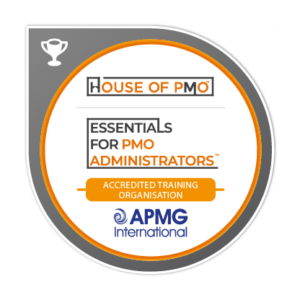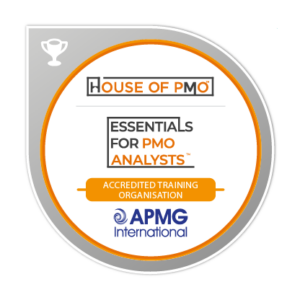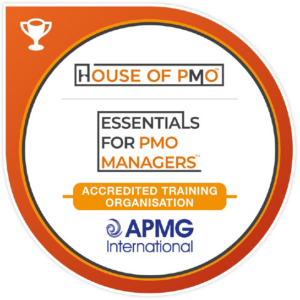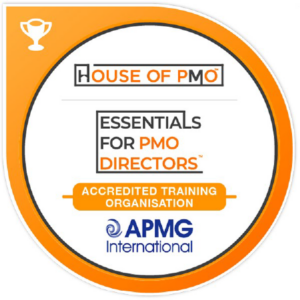
You’ve just finished school or university and now you’re looking forward to the rest of your working life! You’ve heard about project management, in fact, you’ve been involved in some projects – either in education or perhaps as part of your hobby or voluntary work you’ve been involved in. Would it be possible to start your working life in this profession?
Yes it is possible and one of the entry-level positions in project management is that of the PMO Administrator, Co-ordinator or Support officer.
What is a PMO?
At the highest level, a PMO is a business function with two primary aims:
- To help the businesses in the decision-making process around the projects and programmes they run, and;
- To help businesses get better at running projects and programmes by supporting the increase of capability required by the organisation to deliver projects and programmes more successfully.
There are other aims and reasons why PMOs exist – but ultimately its these two that have the greatest impact when a great PMO does its job well.
What are PMO Administrators, Co-ordinators and Support Officers?
Support officers, often called Project Administrators or Project Assistants, are the people who support projects, either within a PMO structure or individually assigned to a Project Manager or team. Responsibilities might include reporting, information control, maintaining best practice within the PMO, quality assurance and project support.
The nature of the role means you are often the centre point for the project – along with the Project Manager. The Project Manager relies heavily on you to make things go smoothly. If meetings need arranging, agendas set and actions chased, it’s the Project Support Officer or PMO Adminstrator that makes it happen. The same applies with travel arrangements, team events, last-minute project purchases and getting the client’s time in the diary. You remove any blockers!
Project Co-ordinators tend to have a little more experience working in project environments – they understand all the project management level life cycles, processes, techniques and tools which makes it easier to transition to the programme level role. Many Programme Office Co-ordinators will have previously worked on a singular project or Project Management Office.
The Programme Office Co-ordinator also needs to understand the landscape and infrastructure of a programme too. Part of their role will be about setting up and supporting programme level activities and some of these differ a lot from project-level activities.
What do these roles consist of?
The PMO Competency Framework (p. 278 – 279) outlines the key responsibilities of a PMO Administrator as:
- Providing a comprehensive administrative service including assisting in setting up workshops, meetings, taking minutes, chasing actions, arranging travel, arranging quotations and purchases, and managing adhoc queries.
- Ensuring all information and documentation is processed, maintained, monitored and filed.
- Maintain systems for recording costs, timesheets, purchases and expenses.
- Co-ordinate the collation of reports and produce summary reports and packs.
- Maintain risks, actions, issues, change and dependency registers.
Starting without any experience
Gaining knowledge is the best place to start – whether that be through webinars, events (such as those ran by PMO Flashmob), reading around the subject, or taking place in PMO specific training. We have plenty of reading material on our website you can sink your teeth into; a great place to start is our PMO Blog – we have plenty of articles with some great information for those new to the world of PMOs.
Why not check out What Does a Project Administrator Do?, Getting Started in PMO, or 5 Tips for the new PMO Professional?
Ideally though you should start with a PMO course such as: Essentials for PMO Administrators course.
This certification will allow you to develop an understanding of the fundamentals of working in a PMO, and how you can perform project support, and other entry level PMO roles competently and successfully.
Once you have taken a course or done some research about PMO you will be able to understand what transferable skills you might already have. You probably found yourself thinking “I have done that before, it was just called something else”.
In fact, most of us at some point or another will have completed many tasks that relate to projects.
However, these experiences will have been in an informal project setting. When you start applying for roles you need to know how to articulate those experiences using the correct project language.
You can read more about how to do this here>>>
Build confidence
If you look at the role profile of the PMO Administrator, you are likely to identify quite a few skills and behaviours that you have already got. Pull together some good examples of each that you can use on your CV or in the interview.
For example, you may have experience in making travel arrangements, documenting the minutes from meetings, and chasing actions within your organisation.
What kind of company has a PMO?
PMOs can be found in all industries – from aerospace, all the way through to construction, retail, education and even government! Anywhere where projects exists – there is usually some type of PMO – or at least a few support people.
Career path
There are many different ways to go in a PMO career. If you discover you love the world, you can stay working in organisations, eventually moving up to a PMO Analyst, Head of PMO or even work at board-level helping make organization wide decisions on investment.
PMOs can also be a good step towards a career in project management. The Essentials for PMO Administrators certification, not only helps understand the day-to-day responsibilities of the role, but also provides the underlying knowledge you’ll need for any career in projects. Once you’re in your first PMO role, you’ll gain experience not only supporting projects but working with project managers and teams as well as learning how the whole project process works. This is invaluable when you want to make the leap into managing your own projects.
If you’re looking for something a little different, there are many other ways to work in the world of PMOs – as a consultant, coach, trainer or freelance contractor.
Next Steps
So, if you’re looking to start your PMO career, want get involved in the world of projects, or are a recent graduate, why not join us for our next Essentials for PMO Administrators course!
Enjoying Our Blog?
Sign up and receive all our articles (we’ll send you an update once a week!) plus special offers and events:
*This post contains affiliate ad links.











